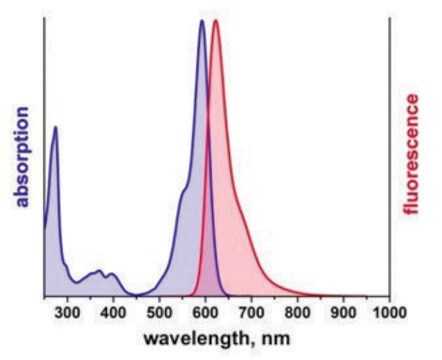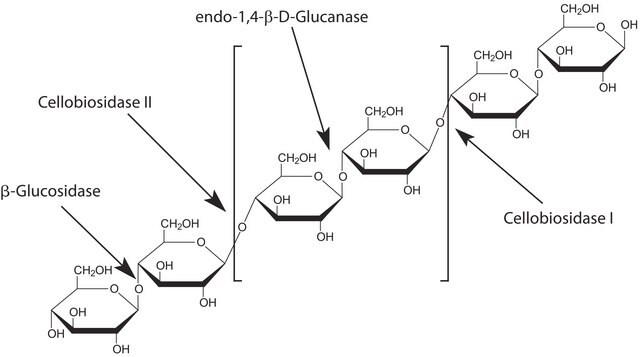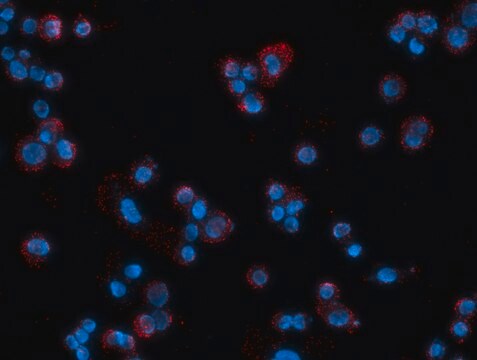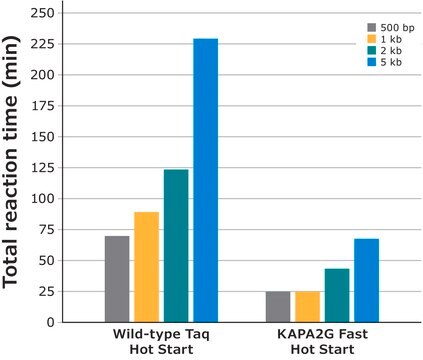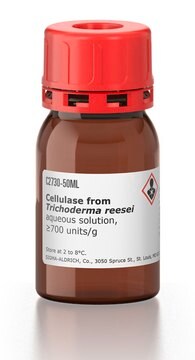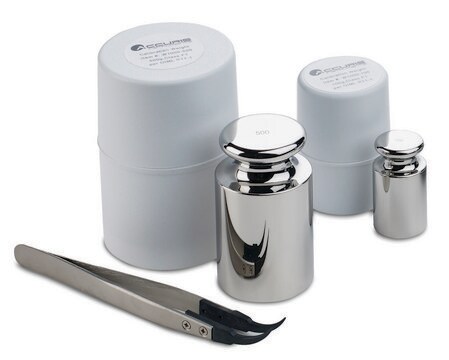SCP0196
Myosin Light Chain Kinase Substrate
≥95% (HPLC), lyophilized
Sign Into View Organizational & Contract Pricing
All Photos(1)
About This Item
Empirical Formula (Hill Notation):
C61H107N23O16
Molecular Weight:
1418.65
UNSPSC Code:
12352202
NACRES:
NA.32
Recommended Products
Product Name
Myosin Light Chain Kinase Substrate (smooth muscle),
Assay
≥95% (HPLC)
form
lyophilized
composition
Peptide Content, ≥62%
storage condition
protect from light
storage temp.
−20°C
Amino Acid Sequence
Lys-Lys-Arg-Ala-Ala-Arg-Ala-Thr-Ser-Asn-Val-Phe-Ala-NH2
General description
Myosin light chain kinase (MLCK) comprises an N-terminal actin-binding domain, a central kinase domain, and a C-terminal myosin-binding domain.
Application
Myosin Light Chain Kinase Substrate (smooth muscle) has been used in MLCK activity assay to study the role of Plasmodium falciparum calmodulin (Pf CaM).
Biochem/physiol Actions
KKRAARATSNVFA-NH2 is used as a myosin light chain kinase (MLCK) substrate.
Myosin light chain kinase (MLCK) is involved in modulating the actin-myosin interaction of smooth muscle. In addition to its kinase activity, MLCK also has actin-binding activity, which can assemble actin filaments into bundles. It also has myosin-binding activity, which can generate myosin filaments.
Storage Class Code
11 - Combustible Solids
WGK
WGK 3
Flash Point(F)
Not applicable
Flash Point(C)
Not applicable
Choose from one of the most recent versions:
Certificates of Analysis (COA)
Lot/Batch Number
Don't see the Right Version?
If you require a particular version, you can look up a specific certificate by the Lot or Batch number.
Already Own This Product?
Find documentation for the products that you have recently purchased in the Document Library.
Yevgeny Zolotarevsky et al.
Gastroenterology, 123(1), 163-172 (2002-07-10)
Maintenance of the mucosal barrier is a critical function of intestinal epithelia. Myosin regulatory light chain (MLC) phosphorylation is a common intermediate in the pathophysiologic regulation of this barrier. The aim of this study was to determine whether a membrane
A V Marchenko et al.
Biofizika, 55(6), 1008-1013 (2011-01-28)
The ability of novel cell-permeating peptide molecules derived from the peptide inhibitor of the myosin light chain kinase (MLCK) L-PIK (Arg-Lys-Lys-Tyr-Lys-Tyr-Arg-Arg-Lys) to inhibit this kinase in vitro and attenuate the thrombin-induced hyperpermeability of endothelial cell monolayer in culture has been
Haruhiko Ohtsu et al.
Arteriosclerosis, thrombosis, and vascular biology, 25(9), 1831-1836 (2005-07-05)
Rho and its effector Rho-kinase/ROCK mediate cytoskeletal reorganization as well as smooth muscle contraction. Recent studies indicate that Rho and ROCK are critically involved in vascular remodeling. Here, we tested the hypothesis that Rho/ROCK are critically involved in angiotensin II
A V Sekridova et al.
Bioorganicheskaia khimiia, 36(4), 498-504 (2010-09-09)
Myosin light chain kinase (MLCK) is the key regulator of various forms of cell motility including endothelial and epithelial permeability in particular. One of the potential MLCK inhibitors to be used in humans is a membrane permeable peptide H-RKKYKYRRK-NH2 (L-PIK).
Our team of scientists has experience in all areas of research including Life Science, Material Science, Chemical Synthesis, Chromatography, Analytical and many others.
Contact Technical Service![[Leu15,Gly18]-Gastrin2-17](/deepweb/assets/sigmaaldrich/product/images/384/185/d3095ca6-fe9a-4e1c-b2e9-29ad2bd40c46/640/d3095ca6-fe9a-4e1c-b2e9-29ad2bd40c46.jpg)
